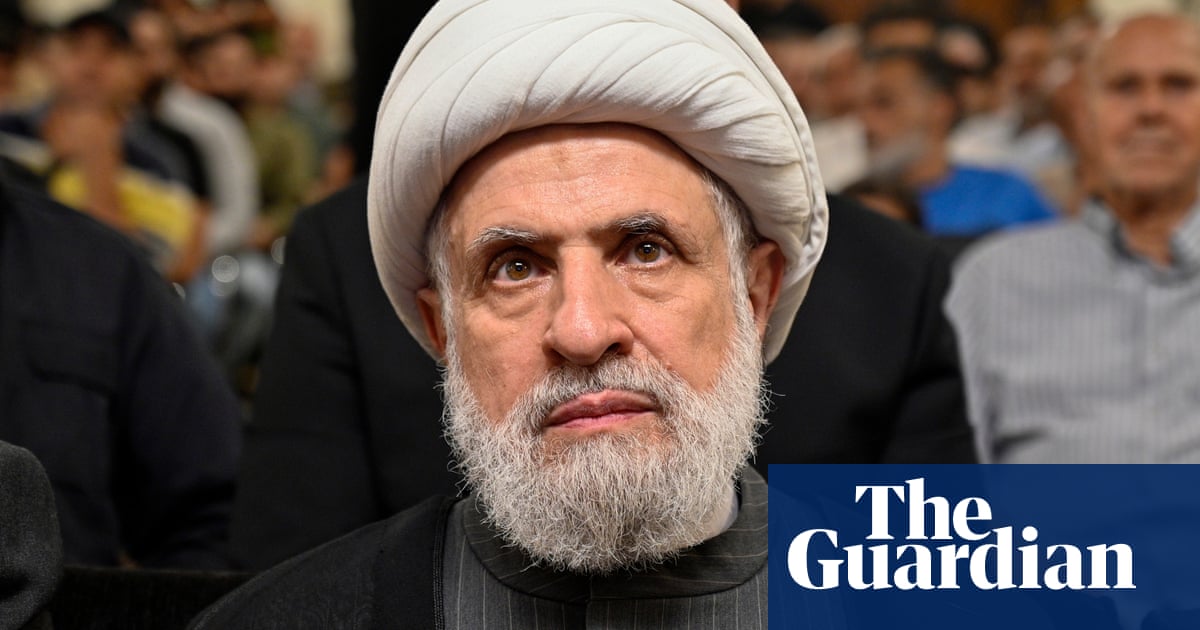Hezbollah has elected its deputy secretary general, Sheikh Naim Qassem, as its new head, ending a month-long leadership vacuum after the group’s long time leader Hassan Nasrallah was killed by Israel.
Since Nasrallah’s death, Qassem has filled in for him, giving a public address earlier this month in which he vowed that Hezbollah would continue fighting Israel in what it described as a war of attrition, despite painful losses.
At the same time, Qassem said that he supported the efforts towards achieving a ceasefire in Lebanon, without linking the country’s fate to a ceasefire in Gaza, which Hezbollah had said was a precondition to a cessation in hostilities with Israel.
Qassem has been the group’s deputy secretary general since 1991 and has been one its most public-facing officials after Nasrallah, often speaking on behalf of the group at rallies and in interviews. Beirut-born but originating from south Lebanon, Qassem was at first involved with the Lebanese Shia Amal movement before becoming a founding member of Hezbollah in the early 1980s.
Qassem’s election has ended a succession crisis within Hezbollah and is among the signs that the group is reconstituting itself after a series of blows from Israel. The last presumed successor to Nasrallah, Hashem Safieddine, has been missing for almost a month after Hezbollah declared he was killed in Israeli bombing in the southern suburbs of Beirut on 3 October.
Qassem has inherited a group that is on the backpedal from a ferocious Israeli offensive and that is diminished from the once mythical status it enjoyed in Lebanon.
Hezbollah has been rocked by explosions that targeted its communication devices and injured thousands of its members last month, and hundreds of Israeli strikes targeting its weapon caches across the country. Almost all of its senior military leadership has been killed by Israel over the last three months.
The group is engaged in fierce fighting with Israeli forces in south Lebanon, who have been conducting what Israel has described as a “limited” operation along the Lebanese-Israel border since 30 September.
Israel has said that it has killed hundreds of its members since then, while Hezbollah has stopped issuing public funeral notices for its fighters for operational security reasons. For its part, Hezbollah claimed it has killed 90 Israeli soldiers, while Israeli media puts the figure at around 37 fighters.
Shortly after his appointment, Israel’s Arabic-language account warned on X that Qassem’s tenure “may be short if he follows in the footsteps” of his predecessors Nasrallah and Safieddine, and called for Hezbollah to disarm.
While Hezbollah and Israel trade blows in south Lebanon, Israeli warplanes continue to bombard swathes of the country.
Israel carried out more than 37 airstrikes in Baalbek, in Lebanon’s Bekaa valley, on Monday, killing at least 67 people and wounding more than 120 injured, according to the area’s governor. More than two-thirds of the dead and wounded were women and children. It was the bloodiest day for the area since fighting between Hezbollah and Israel began a year earlier.
Videos of Brital, one of the towns in Baalbek which was affected in the overnight airstrikes, show a street with collapsed buildings and smoke plumes emanating from areas where bombs fell the night before.
Baalbek is famed for its archaeological sites, chief among them the Baalbek temple complex, designated as a Unesco world heritage site in 1984. Monday night’s bombing damaged one of the historic gates of Baalbek castle, though the interior of the temple complex was unharmed.
The Bekaa valley is historically an area where Hezbollah enjoys support and the group has weapons caches across the area. However, it is one of the largest geographic areas of Lebanon which enjoys a diversity of political and religious makeups.
Since Israel started its intense aerial campaign in Lebanon on 23 September, the Bekaa valley has been one of the most consistently struck areas, outside of south Lebanon.

